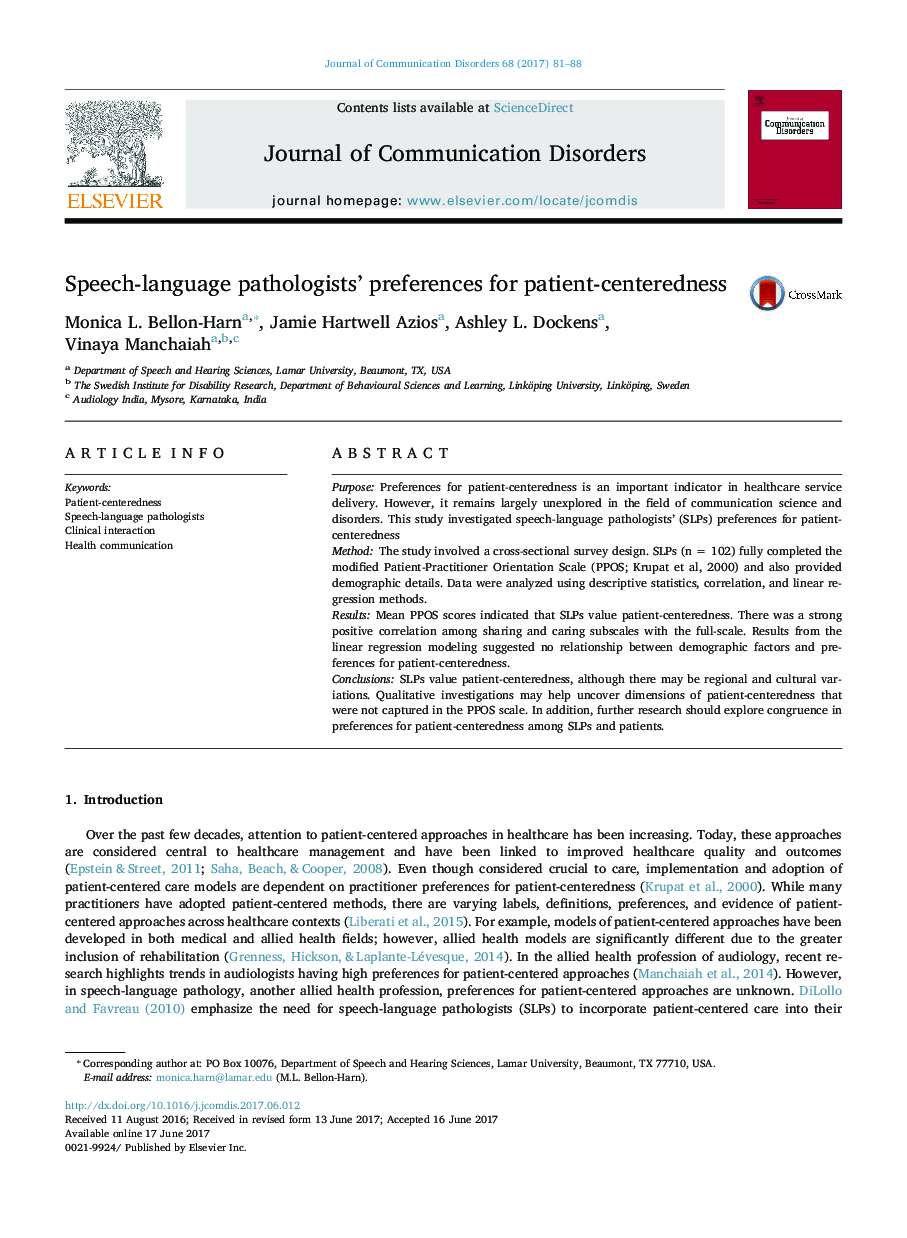| Article ID | Journal | Published Year | Pages | File Type |
|---|---|---|---|---|
| 5039117 | Journal of Communication Disorders | 2017 | 8 Pages |
â¢SLP preference to patient-centeredness is unexplored.â¢The PPOS seems to be an appropriate measure of patient-centered preference.â¢SLPs value patient-centeredness, but regional and cultural variations may exist.
PurposePreferences for patient-centeredness is an important indicator in healthcare service delivery. However, it remains largely unexplored in the field of communication science and disorders. This study investigated speech-language pathologists' (SLPs) preferences for patient-centerednessMethodThe study involved a cross-sectional survey design. SLPs (n = 102) fully completed the modified Patient-Practitioner Orientation Scale (PPOS; Krupat et al, 2000) and also provided demographic details. Data were analyzed using descriptive statistics, correlation, and linear regression methods.ResultsMean PPOS scores indicated that SLPs value patient-centeredness. There was a strong positive correlation among sharing and caring subscales with the full-scale. Results from the linear regression modeling suggested no relationship between demographic factors and preferences for patient-centeredness.ConclusionsSLPs value patient-centeredness, although there may be regional and cultural variations. Qualitative investigations may help uncover dimensions of patient-centeredness that were not captured in the PPOS scale. In addition, further research should explore congruence in preferences for patient-centeredness among SLPs and patients.
